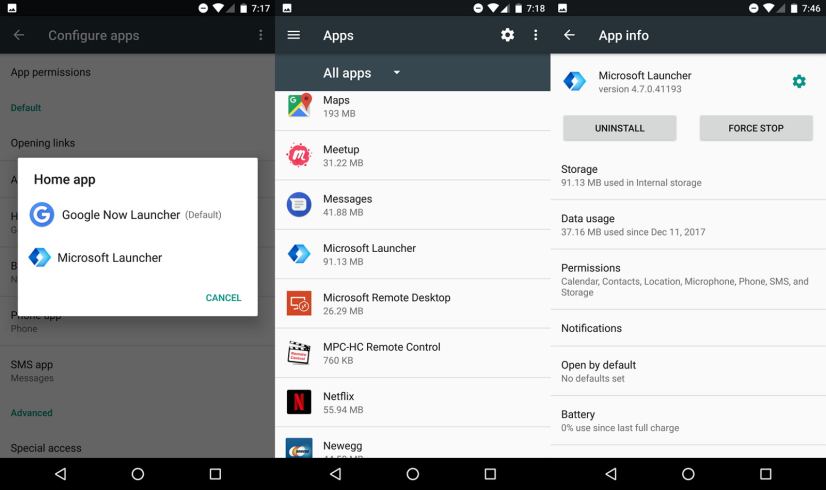
If you’ve realized that the Microsoft Launcher isn’t for you, it’s possible to uninstall it completely from your Android phone.
The Microsoft Launcher is a great alternative to Google’s default launcher on Android, especially for Windows 10 users, as it not only allows you to fully customize the look and feel of your phone, but it also connects with Microsoft services for an enhanced cross-device experience between PC and phone. However, it’s not an experience for everyone.
So, if you have tried it, and didn’t meet your expectations, or you want to switch to a different launcher, you can easily uninstall the Microsoft Launcher from your Android phone. The only caveat is that to get rid of it is not as intuitive as removing an app.
In this guide, you’ll learn the steps to properly backup your settings and completely remove the Microsoft Launcher experience from your Android phone.
How to backup Microsoft Launcher settings
Before uninstalling the Microsoft Launcher, it’s important to create a backup of your settings in case you want to use the experience again, so you don’t have configure your home screen settings from scratch.
To backup your Microsoft Launcher settings do the following:
-
Open Microsoft Launcher settings. (Press and hold the home screen and tap on Launcher Settings.)
-
Tap on Back up & Restore.
-
Tap the Back up Microsoft Launcher option.
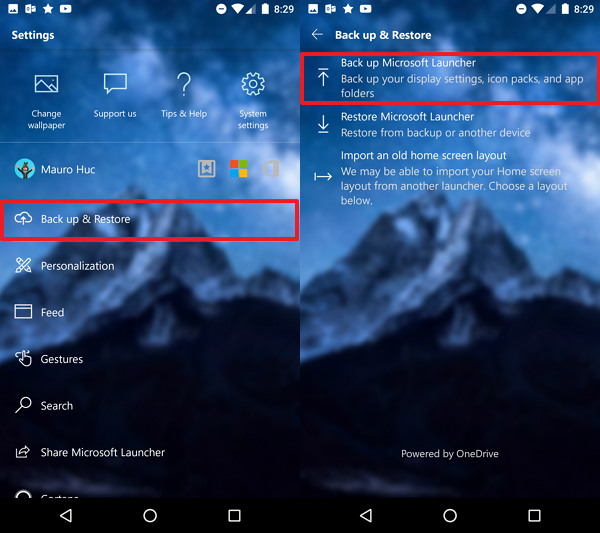
Microsoft Launcher backup settings -
Confirm the Backup to cloud storage option is selected. (It’s also possible to make a backup of your settings locally, but it’s less secure than storing it in the cloud.)
-
Tap the Back up button.
-
Check the settings you want to backup.
-
Tap the Back up now button.
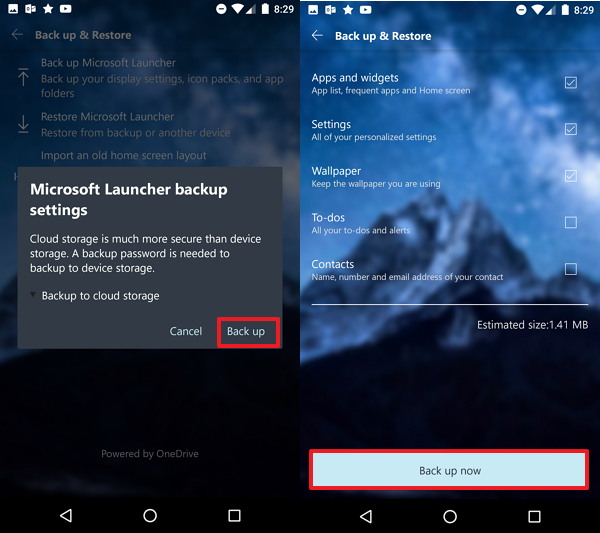
Microsoft Launcher options
Once you’ve completed the steps, your screen layout, personalization, wallpaper, contacts, icon packs, app folders, and other settings will be backed up to your Microsoft account. (If you need to restore your settings, you can use this backup and restore guide.)
How to uninstall Microsoft Launcher
To remove the Microsoft Launcher experience is as easy as deleting an app on your phone, but it requires a few extra steps, just follow these instructions:
-
Open Android settings.
-
Tap on Apps.
-
Tap on Configured apps (gear button in the top-right corner).
-
Tap on Home app.
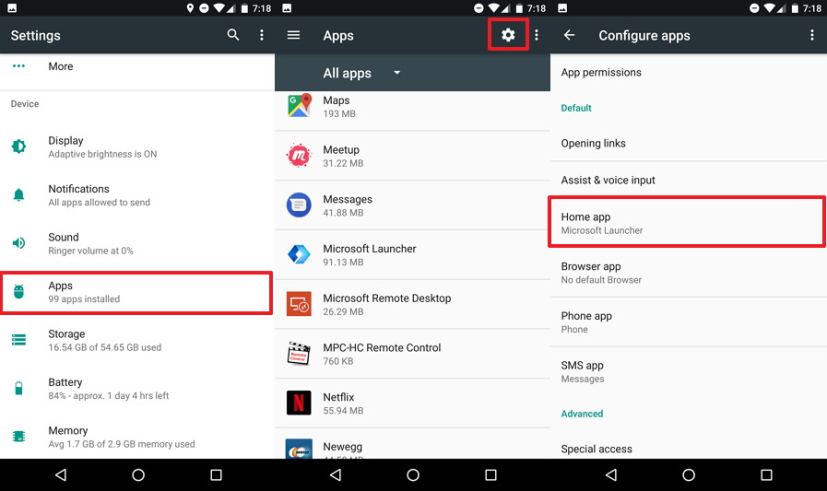
Switch launchers on Android -
Select your previous launcher. For example, Google Now Launcher.
-
Tap the back button on the top-left.
-
Select the Microsoft Launcher app.
-
Tap the Uninstall button.
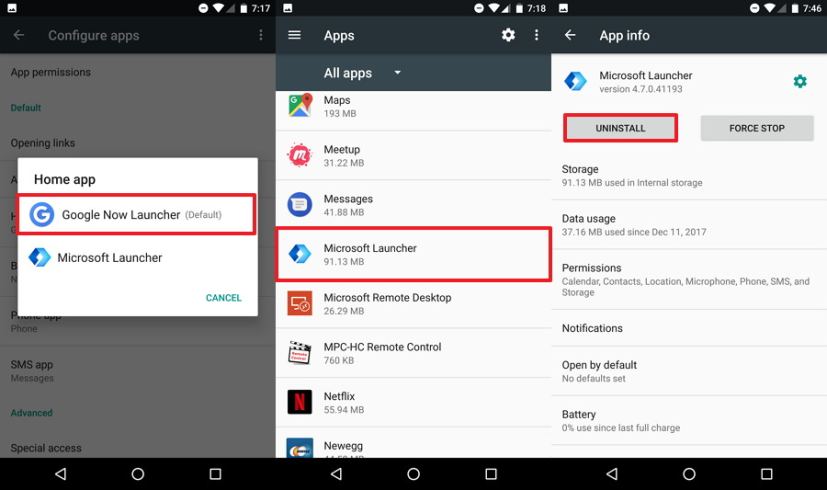
Uninstall Microsoft Launcher on Android
After completing the steps, the Microsoft Launcher app will no longer be available in your phone.
Although deleting Microsoft’s launcher from your Android phone is a straightforward process just like removing any other app, the only caveat is that the uninstall option won’t be available until you switch to another launcher.
If you simply want to switch your default experience to another one, you can use the same steps outlined above until step No. 5.
